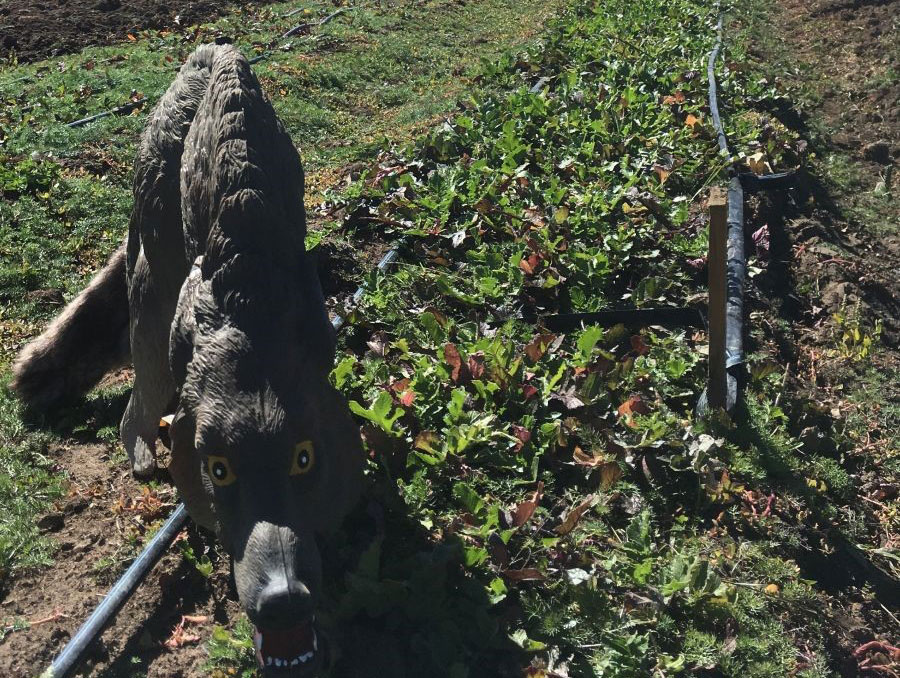Wild birds can provide farmers excellent services, such as your resident red tailed hawk that keeps the area rodent population down or various species that control pest insects. The manure from wild birds is, of course, a natural fertilizer! However, wild birds also love to munch ready-to-harvest produce and their droppings are not risk free.
Their activity can result in physical crop damage and contamination. Wild birds can carry pathogens like E. coli 0157 that present a risk to human health if transferred to fresh fruit and vegetables ( University of California, Davis, 2013). There is a low probability that this will happen, but if it does there are serious consequences. In any case, the loss of a crop to bird damage is a huge bummer to say the least after all of the work and resources invested in it! So, what to do if your crops are being mowed down by persistent birds?
The first line of defense is having a plan in place in advance so you are prepared to act. Check out Desert Farming Initiative resources for preparing a food safety plan and contact us or the Nevada Department of Agriculture for assistance or training. Some measures that we are is using are:
- Do a pre-harvest risk assessment - Scan the harvest area. Where were the birds active? To what extent was the crop affected? Document this info to plan for next season.
- Do not harvest and/or discard produce that is visibly contaminated with fecal matter. - You don't want to bring these into the wash house and run the risk of cross-contaminating even more produce.
- Isolate contaminated areas -Flag and do not harvest within a 5-foot buffer from that area. Remove contamination from areas that can still be reevaluated for future harvest.
- Discourage further activity! - Decoys such as coyotes and 'predator eye' balloons and fencing and row covers can help. Move decoys often so that birds don't become accustomed to them. Materials are easily found online and from your favorite local farm supply store.
- Re-evaluate the area consistently - Clean tools and equipment used in dealing with contamination.
The Nevada Department of Wildlife and University of Nevada, Reno's Etension provide additional tips for wildlife management. Check out our compilation of resources on geese management. And, remember that many wild birds, including geese, are protected species. It is important to repel them before they lay eggs or nest on the farm; they may not be bothered when breeding.
Do you have produce safety news to share from your farm? Successes, failures, tips, challenges, clever efficiencies, breakthroughs? Please contact us. We'll include your story in our next edition of our Wash House News email newsletter. Subscribe to receive our emails.
Desert Farming Initiative, established in 2013, is a collaboration of University of Nevada, Reno's College of Agriculture, Biotechnology & Natural Resources; Experiment Station; and Extension. The diversified commercial farm supports student and community hands-on learning, University research, demonstration of desert crop production, and outreach to the agriculture industry. The Initiative has two farm locations on University Experiment Station land, and is comprised of multiple hoop houses, greenhouses, 12-acres of row crops and a 2-acre vineyard. Currently the Initiative is growing a variety of fruits and vegetables for commercial sale to local wholesale and retail markets.












